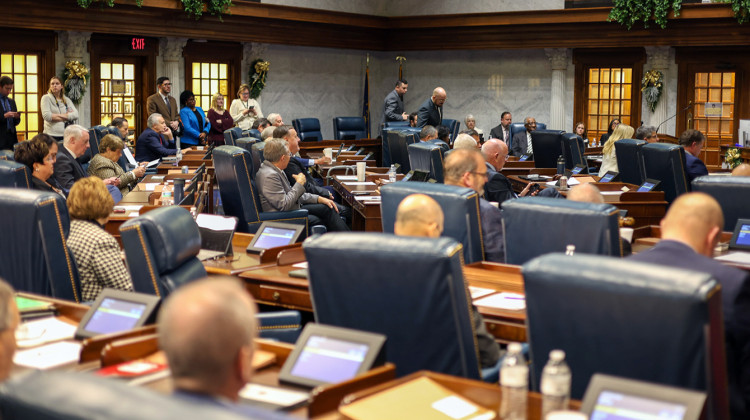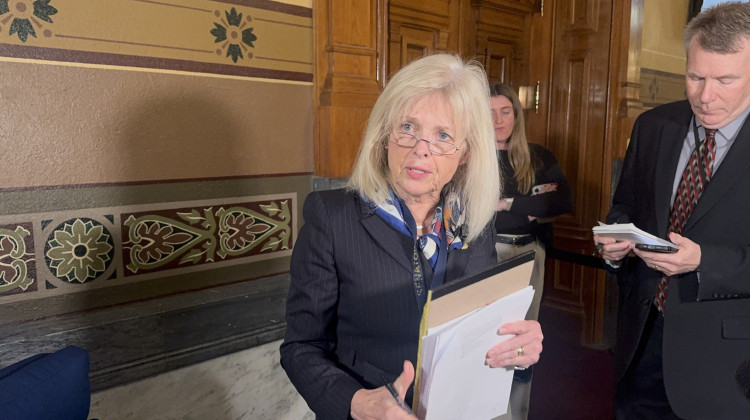
A map of the Martinsville Superfund site groundwater plume. The blue indicates where the highest concentrations of toxic chemicals are in the water.
Courtesy of EPA Region 5The Environmental Protection Agency has come up with a plan to clean up toxic PCE and TCE in Martinsville — the same chemicals suspected of causing rare childhood cancers in Franklin.
The agency suspects the water pollution at the Martinsville Superfund site mostly came from a local laundry and dry cleaning business in the 1980s. Multiple residents in Martinsville have been diagnosed with rare stomach cancers and other illnesses.
The EPA wants to inject chemicals into the groundwater to help break down the toxic PCE and TCE.
Tom Wallace is a retired environmental engineer and the founder of the Martinsville Indiana Superfund Site Association. He said the EPA’s water cleanup plan is close to what the city and its residents wanted, but he’d prefer something quicker and hopes the agency will keep an open mind.
“It is effective, but it's longer term. We're talking 17 to 30 years in many cases. And looking at some of the PlumeStop things, they've done it in two years or less," Wallace said.
PlumeStop is what’s being used to clean Franklin’s groundwater.
Wallace said it's been about 30 years since the contamination happened — in that time an entire generation in Martinsville has been exposed to these harmful chemicals. His group is working with Purdue University researchers to study how exposure to PCE specifically might be affecting the city’s children — especially their ability to learn.
The EPA also hopes to address harmful vapors that could be seeping into homes and businesses from the soil — but that’s been a challenge.
READ MORE: Martinsville Residents Still At Risk From Old Contaminants
Erik Hardin is the EPA’s remedial project manager for the Martinsville site. He said the agency reached out to the owners of more than 200 properties to test for toxic vapors, but only got access to about a quarter of them.
The EPA is working to form a community advisory group of residents to act as a liaison between the agency and people living in Martinsville.
“We are hoping that that is one of the things that this will help with — is that folks get the word out and we get a better rate of access for sampling," Hardin said.
Wallace said there are a lot of rental properties in the city and landlords may be concerned that testing for the pollution will affect their property values. He said there may be ways renters can still allow the EPA and other researchers into their homes, but many renters still fear retaliation from their landlords.
The EPA also wants to let residents on private wells know that their water may not be safe to drink. The city water, however, is being treated for the toxic chemicals.
There are at least three other areas of groundwater pollution in Martinsville not included in the EPA's Superfund cleanup.
The agency will hold a virtual public meeting about forming the community advisory group on Wednesday, March 24 at 6 p.m. Eastern.
CORRECTION: A previous version of this story misspelled Erik Hardin's name. It has since been corrected.
Contact reporter Rebecca at rthiele@iu.edu or follow her on Twitter at @beckythiele.
Indiana Environmental reporting is supported by the Environmental Resilience Institute, an Indiana University Grand Challenge project developing Indiana-specific projections and informed responses to problems of environmental change.
 DONATE
DONATE






 Support WFYI. We can't do it without you.
Support WFYI. We can't do it without you.